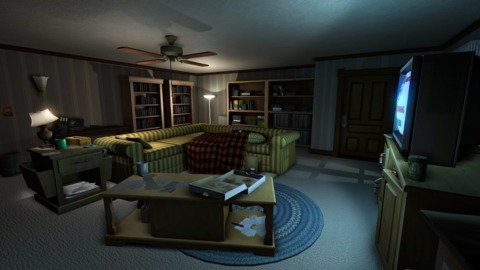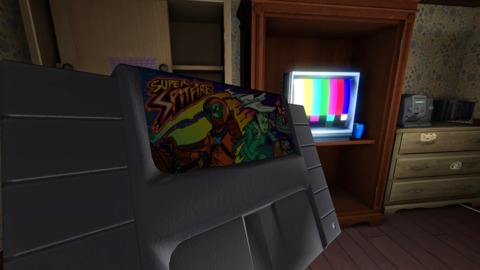Can Video Games Tell a New Kind of Story? - Gone Home
By Kenori 6 Comments
Minor Spoilers For Gone Home

Videogames are still a burgeoning medium. In the grand scheme of things, when compared to other forms of auditory and visual stimulation, the medium is still in it's infancy. The idea that videogames could be considered a valid form of storytelling "art" would have been laughable 30 years ago. But as time has worn on and the people who grew up playing Tetris and Super Mario Bros. have matured, so too has the idea of what constitutes a "story" in gaming. Where once the idea of a "plot" in a videogame would be a text dump at the beginning and a few words in the manual, now the games have become more complex, with intricate cutscenes and dialogue from top voice talent to shape a story that is interactive.
But even in this emerging field, most videogame stories are little more than gameplay concepts and ideas molded around a very Hollywood-esque story. And while thats not always a bad thing (The Last of Us crafts an amazing story that melds gameplay with an oscar-caliber Hollywood movie, but more on that game at a later date), the video game industry holds the potential for so much more than that. For the longest time, I was completely content with the stories that videogames were telling. I had never dreamed that there was a compeletely different style of story that the medium could tell. One that could use the abilities of the medium to push the boundaries of storytelling that Hollywood could never hope to accomplish. Then, along came Gone Home.
Gone Home is a not really a "videogame" in the classic idea of what a "videogame" is. There are no enemies, there is no antagonist, no bad guys whatsoever. It is more of an adventure game of the old Myst style, but even that sort of puzzle-solving is beyond this game. What it does have in common with it's 1993 brother is a sense of exploration: The idea of learning something new by yourself, without the game holding your hand to do so.

It is entirely possible to beat Gone Home in the span of an hour, but it's the act of exploration and learning about this big house you're exploring and the people in it that will push you deeper into this world, and realize that there is more under the surface. The main story is well crafted and a great achievement in gaming for it's own reasons, but by going through each of the rooms, looking at all the details lovingly crafted by The Fullbright Company, you begin to get a sense for each of the characters in the game. From the sister secretly learning Street Fighter 2 moves in the hopes of impressing a crush, to the father whose novel was a moderate success, but who struggles to write a decently marketable followup, each of these discoveries lend voices and personalities to people who you never meet, and by building this foundation on these characters, the main story grows roots as you realize the consequences of the actions of each of the family members.
The Fullbright Company have crafted something truly special with Gone Home. By using abilities and features that can only be done in videogames, they have managed to create a story that becomes more involved, more pervasive, and more emotional each time it is viewed. I personally cannot wait to see what they do next.
(Originally written 07/02/2014)
